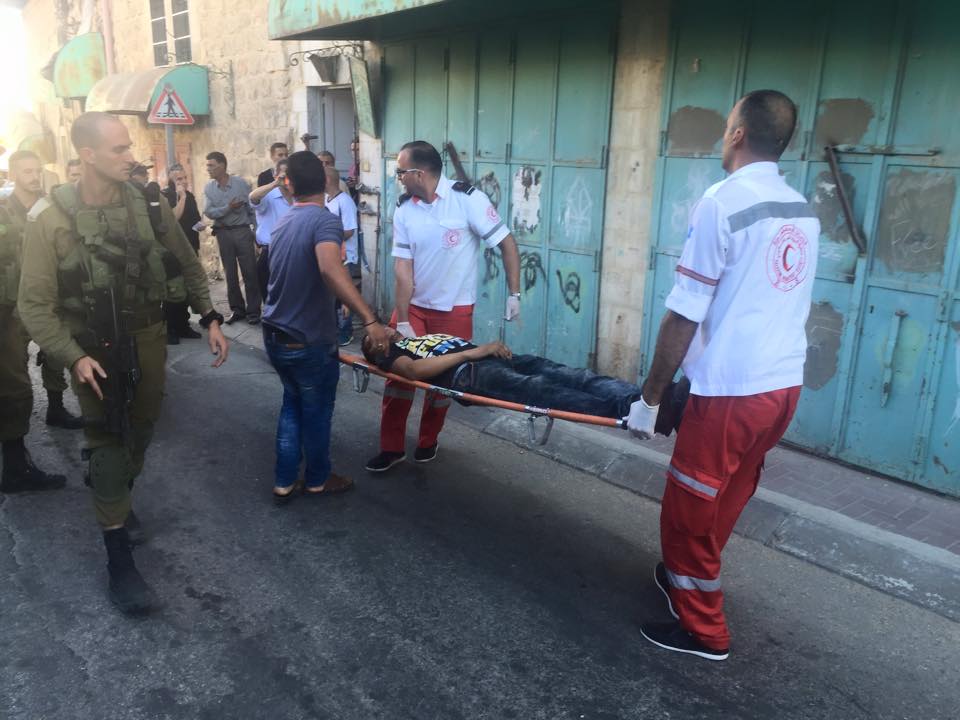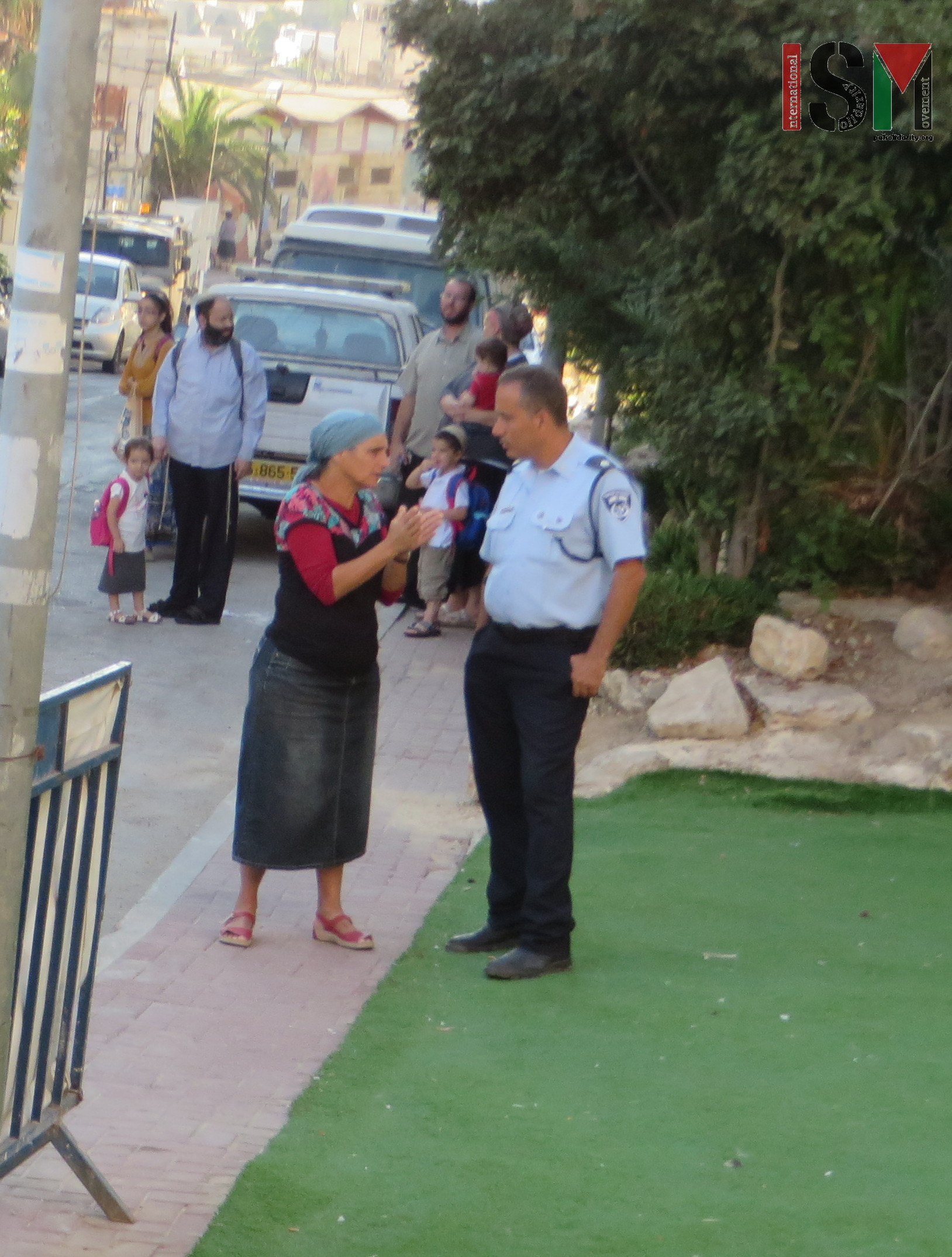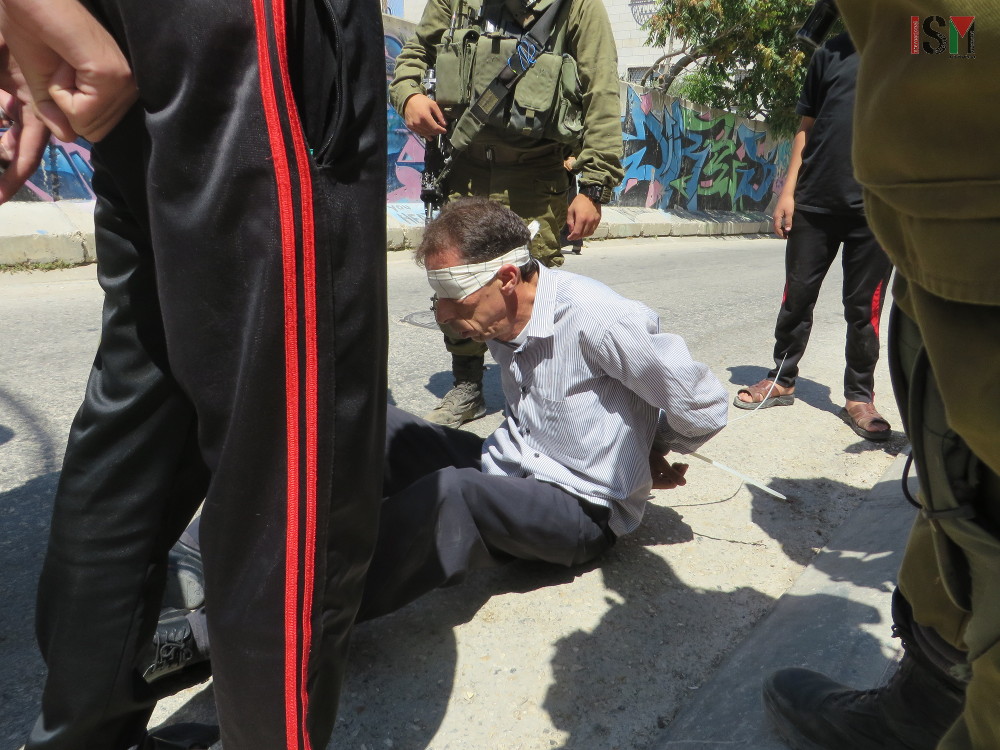Category: Hebron
-
Settlers violently attack a Palestinian man on Shuhada-street
5th September 2015 | International Solidarity Movement, Al-Khalil Team | Hebron, occupied Palestine Tonight at around 6 pm a Palestinian man was detained at Daboya checkpoint in Shuhada-Street in Hebron in occupied Palestine. While he was detained a group of young settlers came to the checkpoint and attacked him. The 3 settlers were beating the…
-
Settler attacking international activists in Hebron
1st September | International Solidarity Movement, al-Khalil Team | Hebron, occupied Palestine Yesterday in al-Khalil (Hebron) in occupied Palestine, a female settler harassed and attacked international activists who were monitoring a checkpoint during school-time. In the morning volunteers were standing close to Qurtuba school, monitoring children on their way to school. This school is particularly prone…
-
Violent arrest of Palestinian man in al-Khalil (Hebron)
29th August 2015 | International Solidarity Movement, al-Khalil Team | Hebron, occupied Palestine A 52-year old Palestinian man was arrested at Shuhada checkpoint in al-Khalil (Hebron) yesterday, for ‘not obeying soldiers’ orders. Israeli forces painfully handcuffed and blindfolded him. Around 1:30 pm, Hisham Azzeh walked through Shuhada Checkpoint in order to reach his house that…



